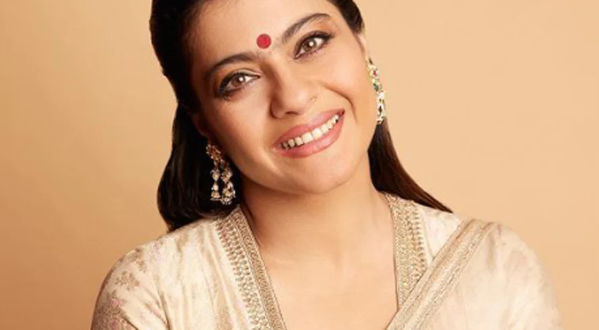DAINIK NATION BUREAU : Bollywood actress Kajol faced a backlash recently following her remarks about “uneducated political leaders” during a virtual interaction. In response to the criticism, the actress has clarified her statement, emphasizing that her intention was to highlight the significance of education in political leadership. This article delves into the controversy surrounding Kajol’s comments, her subsequent clarification, and the broader conversation on the role of education in politics.
The Controversial Comments : During the virtual interaction, Kajol expressed her opinion on the influence of education in political leadership, stating that “we need the best and most educated people in politics.” Her comments stirred a wave of controversy, with critics accusing her of elitism and undermining the abilities of leaders without formal education. Social media platforms buzzed with discussions, as netizens debated the merit of her statement and the broader issue of educational qualifications in politics.
Kajol’s Clarification : Following the backlash, Kajol took to social media to clarify her comments and address the misunderstanding. In her statement, she emphasized that her intention was not to demean or discredit any individual, but rather to emphasize the importance of education in leadership roles. Kajol reiterated her belief that education equips individuals with knowledge, critical thinking skills, and a broader perspective, which are crucial attributes for effective governance.
The Significance of Education in Political Leadership : Kajol’s clarification raises an important question about the role of education in political leadership. While formal education is not the sole determinant of leadership abilities, it does provide individuals with a foundation of knowledge, analytical skills, and the ability to comprehend complex issues. Education can foster critical thinking, promote evidence-based decision-making, and enhance the understanding of social, economic, and political dynamics.
Inclusive Representation and Diverse Perspectives : While educational qualifications are valuable, it is essential to acknowledge that effective political leadership requires a combination of skills, experience, empathy, and a deep understanding of the concerns and aspirations of the people. Inclusive representation is crucial to ensure that diverse perspectives are brought to the table, reflecting the voices of various sections of society.
Rather than focusing solely on educational qualifications, it is equally important to consider a leader’s commitment, integrity, ability to communicate, and connect with the people they represent. A balance between education, experience, and an understanding of ground realities is necessary for effective governance.
A Call for Constructive Discourse : The controversy surrounding Kajol’s comments presents an opportunity for constructive dialogue on the interplay between education and political leadership. It is essential to move beyond personal attacks and engage in meaningful discussions about the qualities and skills required for effective governance. Society can benefit from a diverse set of leaders who possess a range of experiences, educational backgrounds, and perspectives, as long as they exhibit integrity, empathy, and a commitment to public welfare.
Kajol’s recent clarification regarding her comments on “uneducated political leaders” reflects her intent to highlight the significance of education in political leadership, rather than undermine the abilities of individuals. The incident brings attention to the broader discussion on the role of education in politics and the qualities necessary for effective governance. As the conversation unfolds, it is important to foster constructive discourse, recognize the value of education in leadership, and strive for inclusive representation that reflects the diversity of society.
 Dainik Nation News Portal
Dainik Nation News Portal

